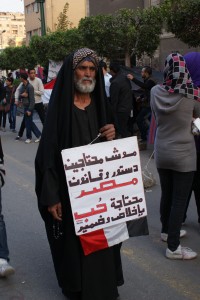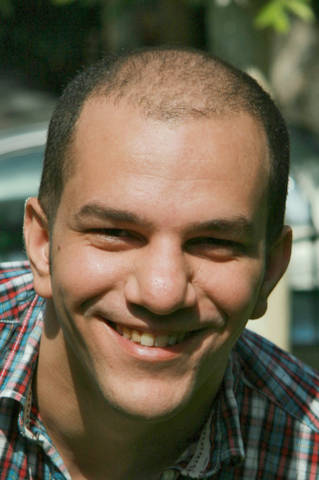Egypt needs fundamental, not fundamentalist rights
By Osama Diab
Egypt's new constitution should focus on democracy, equality and human rights, not religious identity or military budgets.
Sunday 1 April 2012

When millions of Egyptians took to the streets last year and chanted “the people want to bring down the regime,” they were clear about what they wanted the regime to do, but not about the kind of system they would like to replace it with. Since Hosni Mubarak's downfall in February last year, debate over the country's identity has been fierce amid a power vacuum characterised by no clear plan or time frame for a peaceful transition of power and to democracy.
The intensity of the dispute peaked this week following the appointment of the 100-member constitution-writing committee by the parliament – composed mostly of Islamists. The interim constitutional declaration grants the parliament the power to “elect a provisional assembly composed of 100 members which will prepare a new draft constitution”.
Exercising this right, the Islamist-dominated parliament allocated about two-thirds of the 100 seats to figures from an Islamist background. The committee, of which 50% are members of the parliament, met for the first time this week to plan their task – an expectedly difficult one with three powerful ideological and political groups having conflicting interests in the writing of the constitution.
Egypt's military rulers, the Supreme Council of Armed Forces (SCAF), are looking to maintain and entrench their privileged position in the new constitution. SCAF wants to be independent of any elected body's supervision and key to this would be no parliamentary oversight over its finances. A list of SCAF-sponsored supraconstitutional principles, issued by the deputy prime minister Ali al-Selmy last autumn, was rejected by liberals, Islamists and leftists amid concerns of constitutionally establishing a deep military state. Article 9 of the document explicitly states that SCAF is solely responsible for all matters concerning the armed forces. It also grants the military the right to approve all legislation pertaining to its affairs including its budget.
The second player is the Islamist parliamentary bloc, who argue that they are currently the only elected representative authority in the country and that their choice would be the most reflective of the people's choice; not to mention that they have the constitutional power to elect and appoint a constitution-writing committee.
An Islamist-designed constitution raises concerns from the third group – minorities and non-religious political forces, including different shades of leftwing and liberal politics, that would like the constitution to secure social, political and personal freedoms and equality rather than emphasise Egypt's religious identity and discuss the military budget. Their argument is that a “temporary” parliamentary majority, that will be gone in four years, should not have a monopoly right over drafting a “permanent” constitution that will govern Egypt for generations to come.
Despite possessing only minimal representation in parliament, the political left still exercise some degree of influence by dominating civil society, especially human rights organisations, while the liberals maintain control of the media and much of the economy.
There are also fears that a potential showdown between the military and the Brotherhood could have a devastating effect on the country's transition to democracy in a repeat of the 1954 scenario when the Brotherhood clashed with the then military rulers over writing the constitution and the sharing of power, especially after a public exchange of aggressive statements a few days ago over the Brotherhood's demands for the dissolution of the military-appointed government.
The constitution, however, is not the right place to debate these matters. The constitution's role should be to tackle fundamental issues such as personal freedoms, equality before the law, citizenship and democracy. On top of this, it should organise the relationship between the executive, legislative and judicial powers while setting the stage for all the political powers to compete equally and freely. Issues that are fluid and prone to change, such as the military budget and religious identity, should not be entrenched in the document.
Risking even further Islamist domination, the strife and disappointment have caused many non-Islamist members to withdraw from the committee as a gesture of protest against the under-representation of many groups.
Ziad Bahaa al-Din, a lawyer and parliamentarian who withdrew from the committee, wrote in an article for al-Shorouk newspaper that was translated into English by the Arabist blog saying that “all of Egypt – including all its legal, constitutional and academic experts, labour leaders, NGOs, judges, intellectuals, and writers, men and women, Muslims and Christians, people young and old – […] will be represented in the Constituent Assembly by 50 people, while the MPs alone have reserved the remaining half for themselves.”
The Brotherhood and other Islamist groups should realise that in drafting a constitution, parliamentary representation should be irrelevant, not just because it is temporary, but also because bigger religious or political groups should not be able to grant themselves greater rights. Democracy, equality and human rights should be the backbone of the new constitution; the role of the constitution in a democracy should be to limit, not increase, power of the majority over the minority.
This article was published in The Guardian‘s Comment is Free on 31 March 2012.


